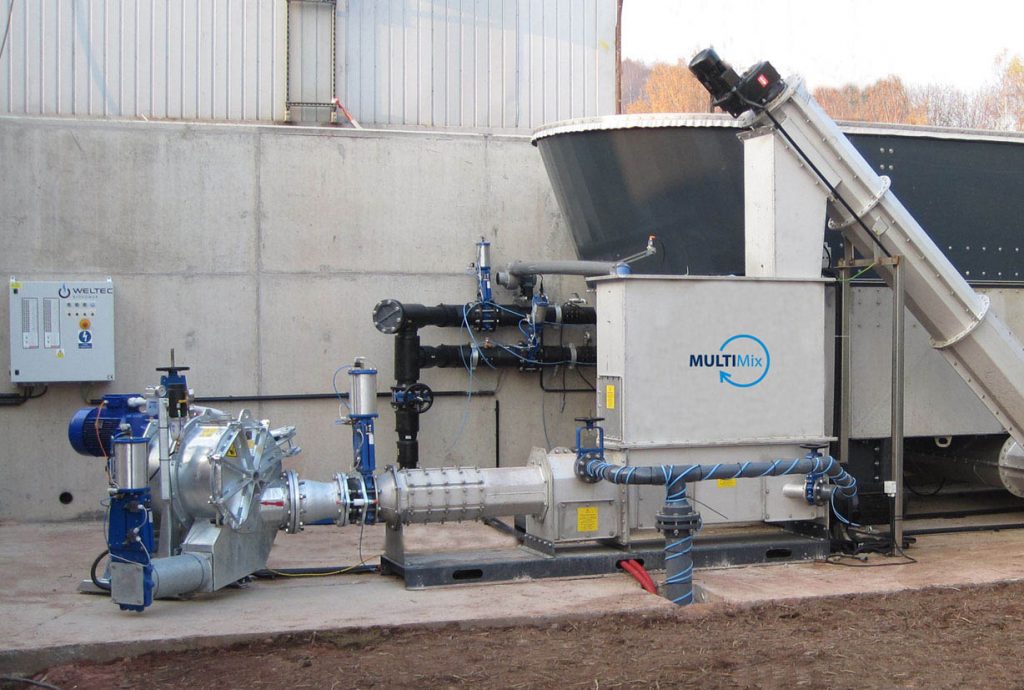In the course of 2017, Ireland intends to initiate the energy reform with a new feed-in tariff for renewable energies. The government plans to increase the amount of green electricity from the current figure of about 23 percent to 40 percent by 2020. The tariff system is to establish a favourable environment for biogas plant operation. In view of the extensive agricultural and waste resource potential available in Ireland, WELTEC BIOPOWER UK will showcase its AD plant technologies at the Energy Now Expo Ireland, which will be held in the end of October in The Hub in Kilkenny.
In early September, the Irish Department of Communications, Climate Action & Environment (DCCAE) announced the adoption of a new subsidy regime to promote renewable energies, to be known as the Renewable Energy Support Scheme (RESS). So far, Ireland has been the only European country without an incentive scheme for heat from renewable sources. However, the green island has to meet EU requirements by 2020. This means that 16 percent of Ireland‘s total energy needs for power, heat and trac must be provided from renewable energies. This is to be achieved by making use of all green energy sources available in the country. Biogas is to play a key role especially in meeting the individual goals for the heat and transport sector.
The conditions for expanding the network of biogas plants in Irelands are very good: Firstly, the agriculture and waste sector boasts an enormous biomass potential. Secondly, with a growth rate of 4.9 percent in 2016, Ireland is the fastest-growing national economy in the EU and o ers a favourable investment climate. Moreover, the country wants to gain independence from energy imports. However, in order to successfully initiate the energy reform, there is a special need for biogas plant manufacturers who have long-standing plant engineering experience in the region.
More than 10 years ago, WELTEC BIOPOWER and its expertise were instrumental in establishing the biogas industry in the UK. Through the individual plant design and tried and tested components for various substrates and biomethane processing, the plant manufacturer has already established almost 20 biogas plants in the UK. Eight of these plants are located in Northern Ireland, where WELTEC is currently building two AD plants that will be finished soon.
In Newtonabbey, an hour‘s drive from Belfast, a 500-kW plant is being built for a pig fattening farm. Up to 70 percent of the feedstock is pig slurry. The rest will consist half of grass silage and half of maize silage. In order to make efficient use of the high energy potential of grass silage, the operator has opted for the MULTIMix system. This WELTEC input system is positioned between the dosing feeder and the digester. Before the substrate is loaded into the digester, the fibrous material is shredded and mixed with pig slurry.
The second 500-kW biogas plant in Benburb near Armagh, close the Irish border, will also go live in the coming winter. It is being built at an old industrial site. The feedstock mix mainly consists of cattle manure and grass silage as well as of maize silage and chicken manure. Apart from a digester, the pre-storage tank, the digestate storage tank and the dosing feeder, the plant in Benburb will therefore also make use of the MULTIMix system.
At the Energy Now Expo Ireland, which will be held for the first time in Kilkenny on October 25 and 26, WELTEC will showcase the benefits of the products for the Irish market. The MULTIMix will also be the central topic of a presentation by WELTEC sales manager Kevin Monson on Thursday October 26 at 1.15 pm at the accompanying conference. A live demonstration of the MULTIMix can be viewed on Friday, 27 October, a day after the event. The event organisers will o er a bus tour to an AD plant in Loughgall, County Armargh, Northern Ireland. At the site, visitors will be able to see how the handling of agricultural leftovers and vegetable production waste with the robust MULTIMix secures the technical and economic stability of the biogas plant operation.
Furnished with such mature components, the operators of biogas plants in Ireland and the UK will be well prepared for the anaerobic digestion of the extensive spectrum of raw materials.


